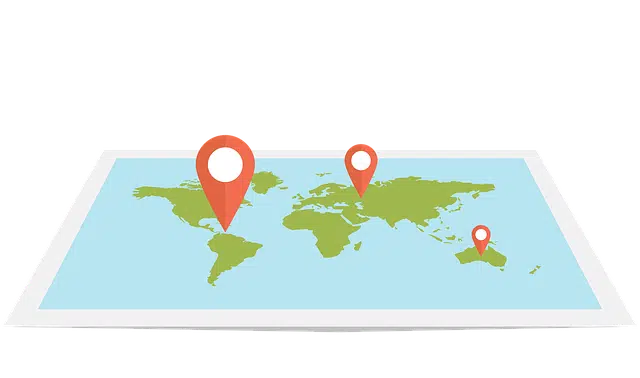
Location is the identification of a specific location on the earth's surface.
Location is the act and result of locating : indicating or establishing the geographical location of something or someone. The term refers to the location in space , defined from different references.
Geographic location
The idea of location can be linked to the identification of a specific site on the planet 's surface using geographic coordinates . This means that, knowing the length and longitude , it is possible to locate a point anywhere on Earth .
Geographic location or geolocation is carried out through a positioning system . Nowadays, it is common to use the global positioning system ( GPS ), capable of locating a point on the surface with a precision of a few meters or even centimeters.
To achieve location, GPS uses at least four satellites and uses trilateration . The GPS network has more than twenty satellites in orbit around the planet: in this way, it is guaranteed that there are always four or more satellites visible from any corner of the Earth. The receiving device, based on the signals it collects from the satellites and calculating the time it took to arrive, measures the distance and records its position accurately.
Location or position
In colloquial language , to talk about location is to refer to the address of an establishment or the spatial position of an area or zone . For example: "Yesterday, on a television program, I saw a report about a beautiful beach, but I didn't hear its location," "The company hopes to locate new oil wells in the region," "I liked the hotel ." , although its location is not good since it is far from the center « .
Video game localization
In the world of video games , the concept of localization or globalization refers to the adaptation of a title for publication in another region, with all that that entails. Although translation is the discipline that first comes to mind, there are many more aspects that must be addressed to take a product abroad without violating any regulations. Some more examples include music, graphic identity, legal differences, culture , software and hardware.

To export a video game abroad, localization is necessary.
Regarding the term globalization , it is used to distinguish the Eastern and Western versions of a game, while localization refers to adaptation within said parts of the world. Let's look at some of the aforementioned tasks in more detail, starting with language and culture: it is necessary to translate the script, the text of the graphical interfaces and of any documents that the player must read, but also change the cultural references that cannot be be understood outside the original country , with the aim of making the experience equally attractive and entertaining. For example, if we are talking about a national artist who is little known abroad, it is convenient to use another name in other countries.
Software and hardware are important for converting video systems (such as NTSC and PAL), remapping buttons when controller or keyboard settings differ in both countries, and changing the gaming experience to make it more enjoyable. easy to understand. The music and graphics usually undergo changes of different types so that the player feels more identified with the characters and melodies, and also to avoid legal problems regarding issues such as nudity or voluptuous body proportions. And we come once again to the legal field , which raises the most barriers when it comes to localizing a game, especially if there are topics such as homosexuality, violence or historical moments of reality that can hurt the public's sensitivity , among others.
